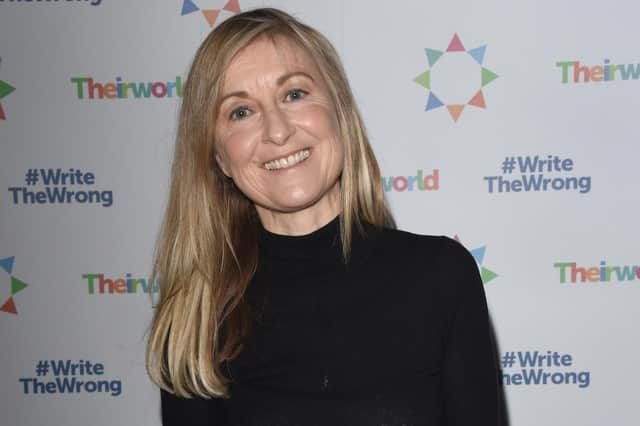We can and must do better as we approach the cusp of a dementia epidemic - Susan Dalgety


I prefer to scan newspapers in the morning while knocking back my strong black coffee, and always in silence.
But Fiona Phillips, a doyen of breakfast telly for more than a decade until she quit GMTV in 2008, was a cut above the usual blonde presenter.
Advertisement
Hide AdAdvertisement
Hide AdHer political interviews were as riveting as her showbiz gossip. So much so that in 2007 the then Prime Minister Gordon Brown offered her a peerage and a post in his government as a junior health minister.
Brown’s offer wasn’t as bizarre as it might seem.
Phillips has been a very effective campaigner for dementia patients for most of her career.
Both her parents suffered from Alzheimer’s, and Phillips cared from them while enjoying a glittering media career.
She is an ambassador for the Alzheimer’s Society and often spoke out about the demands of caring for a family member with dementia.
Advertisement
Hide AdAdvertisement
Hide AdAnd now, at 62 years-old, Fiona Phillips has revealed that she too has Alzheimer’s.
“It was a gut punching, shuddering shock,” she said of her diagnosis 18 months ago, which she kept private until a few days ago.
In interviews she spoke of the stigma surrounding the condition.
"There is still an issue with this disease that the public thinks of old people, bending over a stick, talking to themselves," she said.
Advertisement
Hide AdAdvertisement
Hide Ad"But I’m still here, getting out and about, meeting friends for coffee, going for dinner with Martin [her husband] and walking every day.”
There are thousands of people in Edinburgh living with dementia, and more than 90,000 across Scotland.
Forecasts suggest that the number of people living with dementia is set to grow by a half over the next 15 years.
We are on the cusp of an epidemic, but are we ready for it?
Lengthy waiting times for a diagnosis and a shortage of social care staff suggest we are not.
Advertisement
Hide AdAdvertisement
Hide AdThe Scottish Government recently published its fourth dementia strategy since 2010, which the leading dementia charity Alzheimer’s Scotland has described as “disappointing”.
Its Chief Executive, Henry Simmonds, says, “In a lot of areas the strategy says what we are going to do, but it doesn’t say how we are going to do it.”
And Scotland’s leading dementia expert, Craig Ritchie, has just quit the NHS to set up Scottish Brain Sciences – a network of independent dementia research centres which will give people free access to the latest tests and medication.
He decided to leave the health service after 33 years because of his frustration at the delay in people getting an early diagnosis, and the “tragedy” patients are not being offered radical new drugs.
Advertisement
Hide AdAdvertisement
Hide AdHe argues that while science is making great advances in the treatment of dementia, health systems like the NHS struggle to keep pace.
Dementia can strike anyone.
Yet the most recent statistics show that fewer than half (42 per cent) of people who are newly-diagnosed are referred for support.
We can – and must – do better.
Comment Guidelines
National World encourages reader discussion on our stories. User feedback, insights and back-and-forth exchanges add a rich layer of context to reporting. Please review our Community Guidelines before commenting.